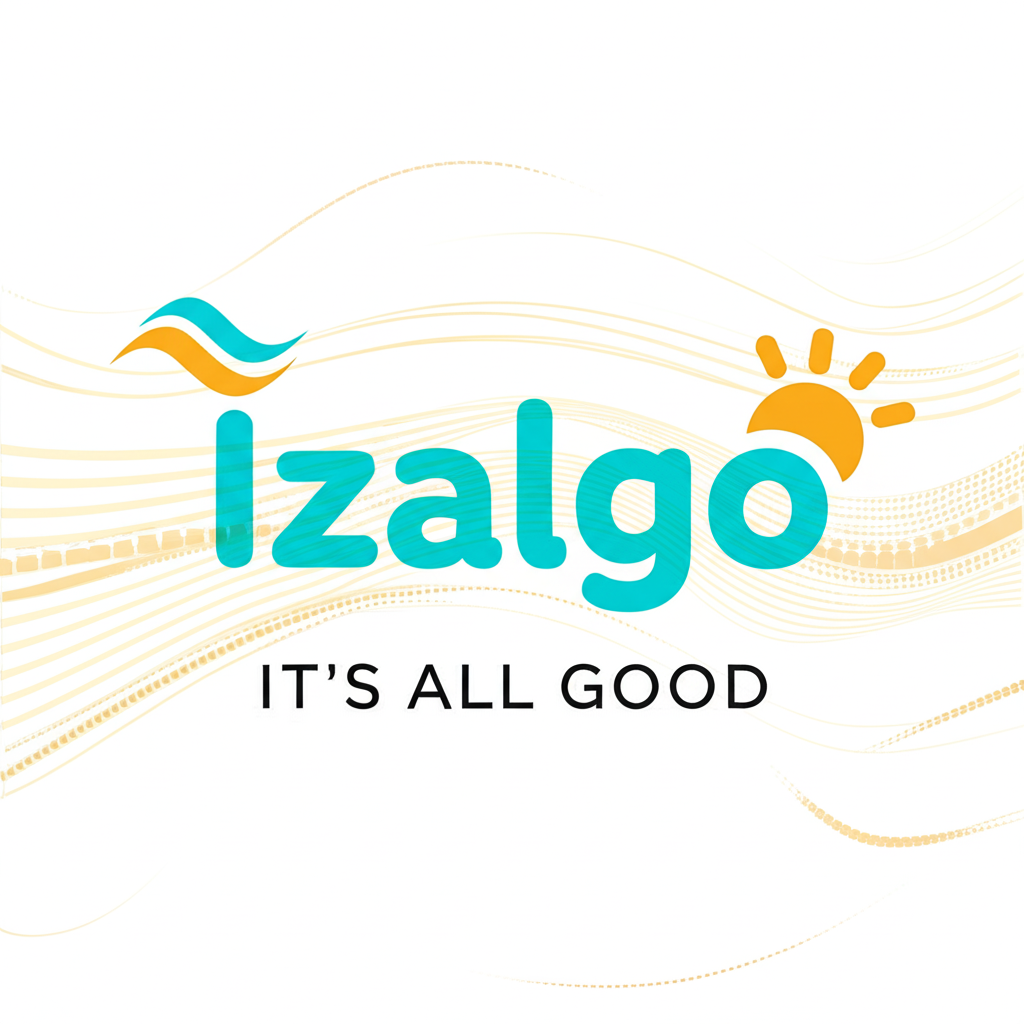A well-adjusted person is one who makes the same mistake twice without getting nervous.
The content discusses the six pillars of emotional adjustment, emphasizing that mistakes are essential for personal growth. It highlights the importance of emotional regulation, self-awareness, a growth mindset, resilience, learning from errors, and building inner confidence.

Key Takeaways
- Emotional adjustment is essential for coping with setbacks and managing self-doubt.
- The six pillars of emotional adjustment include understanding emotional regulation, self-awareness, a growth mindset, resilience, learning from mistakes, and building inner confidence.
- Practicing emotional regulation helps individuals respond thoughtfully to triggers like criticism and failure.
- A growth mindset transforms setbacks into learning opportunities, fostering personal growth and resilience.
- Developing self-awareness and self-acceptance allows for intentional decision-making and deeper emotional connections.
🧠The 6 Pillars of Emotional Adjustment: Mastering the Art of Learning from Mistakes
Have you ever felt paralyzed by the fear of making a mistake or found yourself spiraling into self-doubt after a setback? Emotional adjustment is crucial in these moments. What if we told you that mistakes are inevitable and can be your most excellent teachers?
In today's world, where expectations are sky-high, digital demands are relentless, and the pressure to present a flawless life is stronger than ever, emotional adjustment isn't just a helpful trait; it's an essential life skill. The constant influx of information, social comparisons, and unpredictable global events has created a landscape where resilience and calm are not luxuries but necessities. Navigating this complex terrain requires more than intelligence—it demands emotional agility.
Consider this: A mid-level executive once gave a disastrous presentation to senior leadership. The slides were out of order, her voice trembled, and she skipped over a key data point. Everyone expected her to withdraw in embarrassment. Instead, she followed up the next day with a humble, confident email acknowledging the mistake, providing the correct data, and thanking the team for their attention. Her vulnerability and composure surprised everyone—and earned her a promotion months later. That is the power of emotional adjustment in action.
A quote often attributed to Alexander Hamilton encapsulates this mindset:
“A well-adjusted person is one who makes the same mistake twice without getting nervous.”
This seemingly counterintuitive statement offers profound insight into personal growth, resilience, and emotional intelligence. In this expanded guide, we'll explore the transformative concept of emotional adjustment—your ability to approach life’s ups and downs with wisdom, grace, and unshakable confidence.
Through six foundational pillars, you'll discover practical strategies and mindsets to bounce back from mistakes and thrive because of them. Let’s dive in and begin turning missteps into milestones.
🧘Pillar 1 - Understanding Emotional Regulation: The Cornerstone of Adjustment
Picture this: You're presenting a project to your team. Despite hours of preparation, you fumble a key point. A less-adjusted person might feel overwhelmed, with their inner critic taking over. But a well-adjusted individual takes the stumble in stride, remains composed, and carries on with clarity.
Emotional regulation is this skill in action. It's the ability to manage your emotional responses in ways that align with your values and goals. Rather than suppressing emotions, emotionally regulated people recognize and honor their feelings while choosing thoughtful responses over impulsive reactions.
This skill is especially critical when faced with common emotional triggers such as:
- Rejection – feeling left out or dismissed
- Failure – falling short of expectations or goals
- Criticism – receiving negative feedback
- Uncertainty – not knowing what lies ahead
- Conflict – encountering opposition or disagreement
Unregulated emotional responses to these triggers can lead to defensiveness, avoidance, or emotional shutdown. But when you can stay grounded in these moments, you regain agency over your choices and preserve your integrity.
One powerful, research-backed technique to help with this is “Name it to Tame it,” coined by Dr. Dan Siegel. The idea is simple: when you’re feeling overwhelmed, pause and identify the emotion out loud or to yourself—“I’m feeling anxious,” or “This is embarrassment.” Naming the emotion engages the prefrontal cortex, calming the amygdala’s reactive alarm system. Labeling the feeling creates space between the emotion and your response, allowing clarity, not chaos, to guide your next move.
This skill is invaluable in both professional and personal arenas. Consider a manager who receives unexpected criticism during a team meeting. Instead of reacting defensively, they pause, name their emotion—perhaps frustration or embarrassment—and respond with measured understanding. Or imagine a parent navigating a toddler's tantrum in a grocery store. A regulated response—staying calm, acknowledging the child's feelings, and redirecting attention—can turn chaos into connection.
Developing emotional regulation enables you to navigate high-pressure situations, manage interpersonal conflicts, and recover from setbacks more quickly. It’s the foundation upon which all other emotional adjustment skills are built. Consistent practice strengthens relationships, supports career success, and fosters a more centered, empowered approach to life.
🪞Pillar 2 - The Power of Self-Awareness and Acceptance
Self-awareness is more than introspection—it is the ability to track your internal landscape in real time. Well-adjusted individuals are deeply attuned to their emotions, triggers, and habitual responses. This awareness allows them to identify unproductive patterns and consciously choose how to respond rather than react impulsively.
There’s a direct and consequential link between self-awareness and decision-making. When you're aware of your emotional state, you gain clarity about what’s motivating your choices—whether it’s fear, pride, insecurity, or genuine alignment with your values. For example, recognizing when you're feeling defensive in a conversation allows you to pause, breathe, and choose a response that fosters connection rather than conflict. This way, self-awareness becomes the compass guiding intentional, value-based, real-time decisions.
Acceptance goes hand-in-hand with awareness. Instead of resisting or judging their flaws, emotionally mature individuals view imperfection as an inherent part of being human. They extend compassion to themselves, creating space for learning and transformation. This attitude lays the groundwork for inner stability and meaningful growth. Acceptance doesn’t mean complacency; it means meeting yourself with honesty and kindness, allowing you to evolve from a grounded and loving place.
To develop self-awareness and nurture self-acceptance, consider integrating practical techniques into your daily routine:
- Journaling prompts such as “What emotion did I feel most today and why?” or “When did I feel most out of alignment with my values?” encourage more profound reflection.
- Emotional check-ins—pausing throughout the day to ask, “How am I feeling right now?”—help you stay attuned to your inner state.
- Mindful practices, such as meditation or body scanning, reconnect you with the present moment and your emotional cues.
Additionally, try the “Mirror Work” method developed by Louise Hay—a simple but profound exercise. Stand in front of a mirror, look into your own eyes, and say something kind to yourself, such as, “I am doing the best I can, and that is enough.” This practice enhances self-awareness and rewires the inner dialogue to reflect compassion and empowerment. Over time, mirror work helps dismantle harsh self-judgment and cultivates a nurturing relationship with yourself.
By committing to these practices, you build a greater understanding of yourself, empowering you to respond to life with intention, grace, and grounded confidence.
🌱Pillar 3 - Embracing a Growth Mindset: Turning Mistakes into Stepping Stones
A growth mindset, a term popularized by psychologist Carol Dweck, is the belief that abilities and intelligence can be developed through effort, learning, and persistence.
🔹 Fixed Mindset: “I’m not good at this and never will be.”
🔹 Growth Mindset: “I’m not good at this yet, but I’m learning and improving.”
Well-adjusted people embody this mindset in every area of life. They don’t fear mistakes—they actively seek the lessons that can be learned from them. This shift in perception turns failure into feedback and obstacles into opportunities. It fuels the courage to try again, experiment, and persevere in the face of challenges.
Consider Thomas Edison, who famously said, “I have not failed. I've just found 10,000 ways that won't work,” about his journey toward inventing the electric lightbulb. His repeated “failures” were a necessary part of his learning process, and each attempt brought him closer to success.
Or think of Oprah Winfrey, who was once fired from her job as a television reporter because she was deemed “unfit for TV.” Rather than letting that setback define her, she used it as a launching pad to build a media empire and become one of the most influential voices in the world.
These stories remind us that success is not a straight line. It’s a spiral staircase built on trial, error, reflection, and resilience.
Reframe This: Turning Limiting Thoughts into Empowering Beliefs
Sometimes, shifting to a growth mindset starts with rephrasing your inner dialogue. Try these:
- Fixed Thought: “I failed. I must not be good enough.”
Growth Reframe: “This didn’t work out, but I now know what to do differently next time.” - Fixed Thought: “I’m terrible at this.”
Growth Reframe: “I’m still learning. Every expert started as a beginner.” - Fixed Thought: “I always mess this up.”
Growth Reframe: “I’ve struggled here before, but I’m progressing with each attempt.” - Fixed Thought: “I’m not a natural at this.”
Growth Reframe: “Effort and consistency matter more than natural talent.”
By shifting these thoughts, you change not only how you view challenges but also how you approach and respond to them.
Embracing a growth mindset doesn’t mean you’ll never feel frustrated or disappointed. It means you’ll meet those moments with curiosity and a willingness to grow, knowing that each misstep is a stepping stone toward greater wisdom and confidence.
💪Pillar 4 - Cultivating Resilience and Persistence: Bouncing Back Stronger
Resilience is the emotional elasticity that helps us recover from hardship. When circumstances seem overwhelming, inner strength whispers, “You can get through this. " Resilient individuals don’t avoid pain—they lean into it, learn from it, and use it to build character and courage.
One powerful lens for understanding resilience is post-traumatic growth—the idea that adversity doesn’t just lead to recovery but can also result in profound personal development. This includes greater inner strength, a deeper appreciation for life, stronger relationships, and a clarified sense of purpose. In other words, we don’t simply bounce back—we bounce forward.
Persistence is resilience in action. It’s the refusal to give up after a setback and the resolve to keep moving forward even when progress feels slow. Persistence becomes a superpower when rooted in purpose and vision, enabling individuals to rise repeatedly, each time with greater clarity and strength.
It’s also essential to recognize that resilience is not purely mental or emotional—it is deeply influenced by physical well-being. Adequate sleep, regular exercise, and a balanced diet all contribute to improved emotional regulation and faster stress recovery. A resilient body supports a resilient mind. Skipping rest, numbing through poor eating habits, or neglecting movement can drain your emotional reserves without you even realizing it.
Support systems also play a vital role in cultivating resilience. Trusted friends offer emotional comfort, mentors provide perspective, and therapists help untangle complex patterns. These connections form safety nets, catching us when we fall and reminding us that we’re not alone.
To deepen your resilience journey, try this Resilience Journaling Prompt:
“What has hardship taught me that success never could?”
This reflection transforms wounds into wisdom, helping you reframe difficulties as meaningful chapters in your story — doorways to personal growth and evolution, rather than dead ends.
Together, resilience and persistence form the bridge between mistakes and mastery, enabling you not only to endure but also to emerge stronger, wiser, and more grounded than before.
📘Pillar 5 - Learning from Mistakes: The Key to Avoiding Repetition
Learning from mistakes requires more than reflection—it demands intentional curiosity. What went wrong? Why did it happen? What can I do differently next time?
Well-adjusted people become students of their experiences. They journal, seek feedback, and take time to analyze outcomes. They don’t just move on—they extract meaning, transforming setbacks into stepping stones of wisdom.
The After-Action Review (AAR) is a powerful, structured approach from the military. It’s a simple but effective framework for debriefing any experience:
- What was the goal?
Clearly define what you set out to do. - What happened?
Recount the facts without judgment. - What went well?
Acknowledge strengths or successes, even amid failure. - What can be improved?
Identify specific changes you can make next time.
This process fosters deeper learning and keeps you from getting stuck in cycles of guilt or regret. It shifts the focus from blame to improvement.
To build this habit, consider creating a “Mistake Wisdom Log”—a dedicated journal or digital space where you record your key lessons from missteps. For each entry, you might include:
- The situation or decision
- Your emotional response
- Insights or patterns you noticed
- The new strategy or belief you’ll try going forward
By regularly engaging with your mistakes in this way, you rewire your mindset: failure becomes data, and setbacks become strategy.
Over time, this practice dramatically reduces the likelihood of unconsciously repeating the same mistake. More importantly, it turns everyday life into a personalized curriculum for growth, where every error becomes an invitation to evolve.
✨Pillar 6 - Building Inner Confidence: Trusting Your Ability to Grow
Inner confidence is not arrogance. It’s a quiet, steady trust in your capacity to grow, adapt, and make meaningful contributions to the world. This confidence doesn’t waver in the face of setbacks—it deepens with experience.
At the heart of building inner confidence is the science of neuroplasticity—the brain’s ability to rewire itself through repeated thought and action. Whenever you choose courage over avoidance, effort over fear, or kindness over self-judgment, you strengthen neural pathways, thereby reinforcing your belief in resilience. These small, repeated actions are how new habits—and new identities—are formed.
For example, setting a daily intention to speak up once in a meeting, or practicing a skill you’re unsure about for five minutes a day, can have a compounding effect over time. What initially feels uncomfortable or uncertain gradually becomes second nature. This is how confidence is built—not in grand gestures but in the steady rhythm of repeatedly showing up for yourself.
Well-adjusted people know that failure is not the opposite of success—it’s part of the journey toward it. Their confidence isn’t based on flawless execution but on a proven track record of trying, falling, learning, and trying again. This mindset fosters a calm inner center, enabling them to navigate even chaotic situations with clarity and self-assurance.
Incorporate a Confidence Mantra Practice into your routine to nurture this inner foundation. Here are a few examples:
- “I am learning. I am growing. I am enough.”
- “Every step I take is a step toward my growth.”
- “I trust myself to handle whatever comes next.”
💬 Your Turn:
Write your affirmation, reflecting where you are and what you’re becoming. Speak it aloud each morning or write it on a sticky note where you’ll see it daily.
When spoken consistently and with intention, these words help reinforce the truth of who you are becoming—confident not because of perfection but because of persistent, courageous effort.
🧩Practical Tips for Becoming More Well-Adjusted
Emotional adjustment is a lifelong journey, and wherever you are on the path, there are meaningful practices you can begin right now to strengthen your resilience, awareness, and inner calm. To support your evolution, these strategies are grouped into three levels: Beginner, Intermediate, and Advanced. You can then choose what resonates most with your current experience and stretch into the next stage when you’re ready.
🔹 Beginner Practices: Laying the Foundation
- Practice Regular Reflection: Set aside 10–15 minutes each week to journal about your emotional highs and lows. Ask yourself: What did I learn from this?
- Use Digital Tools: Try mood-tracking or mindfulness apps to help you observe emotional patterns and visualize your progress.
- Practice Mindfulness Daily: Start with just 5 minutes a day of breathwork, guided meditation, or mindful walking to build awareness and reduce reactivity.
- Challenge Negative Self-Talk: Catch yourself in the act of self-criticism and gently reframe the thought into a more positive one. For example, replace “I always mess up” with “I’m still learning, and that’s okay.”
🔹 Intermediate Practices: Strengthening Emotional Muscles
- Seek Feedback Regularly: Invite trusted individuals to share constructive input. Practice listening without defensiveness and reflect on what resonates with you.
- Celebrate Small Wins: Track progress in a visible way (such as a journal, habit tracker, or a “confidence jar”) to build momentum and reinforce self-trust.
- Create a Mistake Wisdom Log: Record what didn’t go as planned, what you learned, and how you’ll approach it differently next time. Turn errors into wisdom.
- Use the “Name it to Tame it” Technique: Identify and label your emotion when feeling overwhelmed. This simple act reduces intensity and increases clarity.
🔹 Advanced Practices: Deepening Mastery
- Form an Emotional Mastery Circle: Assemble a small group of trusted friends or colleagues who are committed to personal growth. Meet regularly to share reflections, challenges, and insights. This mutual support offers accountability, perspective, and encouragement.
- Design Weekly After-Action Reviews: Reflect on your week using the AAR method. What was the goal? What happened? What went well? What can be improved?
- Develop Personalized Mantras or Affirmations: Use intentional language to anchor your inner confidence and emotional presence. Say them aloud or write them daily.
- Mentor Others on the Path: Sharing your experience solidifies your growth and contributes to collective emotional maturity.
- Learn from Role Models: Study people who embody resilience, emotional intelligence, and grace under pressure.
No matter your starting point, emotional adjustment is cultivated step by step, choice by choice. These practices help you align with your values, deepen your connection with yourself and others, and build the capacity to meet life’s challenges with wisdom and grace.
Remember: even the smallest intentional act can spark a profound internal shift. Choose one practice today, and let it be your gateway to greater strength.
🗓️Conclusion
Becoming well-adjusted is not about perfection or immunity to error. It’s about building the emotional tools and mindsets that allow you to remain calm, curious, and courageous in the face of mistakes. The quote often attributed to Alexander Hamilton offers a subtle but powerful perspective:
“A well-adjusted person is one who makes the same mistake twice without getting nervous.”
At first glance, it may seem like a nod to complacency—but look closer. What if it’s not about carelessness but about confidence? About developing the emotional maturity to recognize that even when we stumble again, we no longer panic, because we’re learning, adapting, and evolving.
What might it mean to make the same mistake with wisdom the second time?
It could mean recognizing old patterns with new awareness, responding with grace instead of shame, and seeing the experience not as a failure but as refinement—a necessary step in your evolution.
By nurturing emotional regulation, practicing self-acceptance, embracing a growth mindset, cultivating resilience, intentionally learning from your missteps, and building steady inner confidence, you awaken the transformative power of emotional adjustment. You don’t just bounce back—you rise, stronger and wiser each time.
To support you on this journey, we’ve created a downloadable worksheet that:
- Summarizes the six pillars of emotional adjustment
- Provides space for journaling insights and real-life applications
- Includes prompts for weekly reflection and personal commitments
✨ [Click here to download your Emotional Adjustment Worksheet]
This guide is not the end—it’s the beginning of a lifelong relationship with your emotional self. Keep showing up. Keep learning. And above all, trust that every moment—every mistake—holds within it the power to help you grow.
🚀Call to Action
Your path to greater emotional resilience begins with a tiny, intentional step. Choose a single practice from this guide—perhaps journaling your emotions, reframing negative self-talk, or pausing to name your feelings—and commit to it for the next seven days. Treat it as a gentle experiment in emotional growth, not a test of perfection.
Want a little structure to help you start? Try this 7-Day Emotional Growth Challenge:
Day 1: Do a morning emotional check-in.
Day 2: Reframe one limiting belief.
Day 3: Journal a recent mistake and what it taught you.
Day 4: Practice 5 minutes of mindful breathing.
Day 5: Give yourself a mirror affirmation.
Day 6: Reach out to someone in your support circle.
Day 7: Reflect on your progress and celebrate a small win.
🗓 Bonus Challenge:
Mark your calendar to revisit this guide in 30 days. Reflect in your journal:
“How has one small habit shifted how I respond to challenges, emotions, or mistakes?”
This practice of circling back helps you track your progress and deepen your emotional self-awareness.
Be kind to yourself. Be curious about your growth. Above all, remember that your effort matters. Every intentional choice strengthens your foundation. Every compassionate response is a triumph. Every moment you pause to learn is a step toward becoming a more complete person.
You are more capable than you know—and your next breakthrough might be just one insight away.
“Our actions and decisions today will shape how we will live. And so it is.”
If my writing resonated with you—making you pause, smile, or think—consider buying me a coffee. Your support fuels my thought process and keeps this dream alive, word by word.🍵
📚Recommended Reads
🌿 Books on Emotional Regulation
- “Emotional Agility” by Susan David A powerful guide to understanding and responding to emotions with clarity and purpose.
- “The Language of Emotions” by Karla McLaren Offers tools to recognize the value of each emotion and navigate them with empathy and insight.
🪞 Books on Self-Awareness & Acceptance
- “The Gifts of Imperfection” by Brené Brown Encourages wholehearted living by embracing vulnerability and letting go of the expectations of who we should be.
- “Radical Acceptance” by Tara Brach Blends mindfulness and self-compassion to help us find peace in who we already are.
🌱 Books on Growth Mindset & Learning
- “Mindset: The New Psychology of Success” by Carol S. Dweck The foundational book on cultivating a growth mindset in all areas of life.
- “The Art of Possibility” by Rosamund Stone Zander & Benjamin Zander Offers creative approaches to reframing challenges and unleashing personal potential.
🔥 Books on Resilience & Post-Traumatic Growth
- “Option B” by Sheryl Sandberg & Adam Grant An inspiring exploration of building resilience and finding strength in adversity.
- “The Obstacle Is the Way” by Ryan Holiday A modern take on Stoic philosophy—how turning adversity into advantage creates personal power.
🔍 Books on Learning from Mistakes
- “Black Box Thinking” by Matthew Syed Explores how embracing failure is crucial for innovation, improvement, and growth.
- “Failing Forward” by John C. Maxwell A practical guide to making failure a stepping stone rather than a setback.
💫 Books on Confidence & Inner Strength
- “The Confidence Gap” by Russ Harris Combines mindfulness and acceptance strategies to help people take action despite fear or doubt.
- “You Are a Badass” by Jen Sincero A bold, humorous, and motivating book on self-belief and creating the life you want.
🌀 Bonus: Holistic & Integrative Perspectives
- “Untamed” by Glennon Doyle A profoundly personal and empowering look at trusting your inner voice and reclaiming your truth.
- “The Power of Now” by Eckhart Tolle Encourages living in the present as a path to peace, clarity, and personal transformation.
SoBrief.com is an AI-powered digital platform that provides concise summaries of an extensive catalog of books, enabling users to grasp a book's key takeaways in about 10 minutes.
Remember to explore these resources with an open mind and trust your intuition to find what resonates most deeply with your journey of rediscovery.
🔗 Affiliate Note: Some links on this page may be affiliate-based, allowing us to earn a small commission at no additional cost to you. Your support helps fuel this creative and healing mission—thank you!
Izalgo produced the images herein with AI-powered software.
Copyright©️IZALGO, LLC All Rights Reserved




